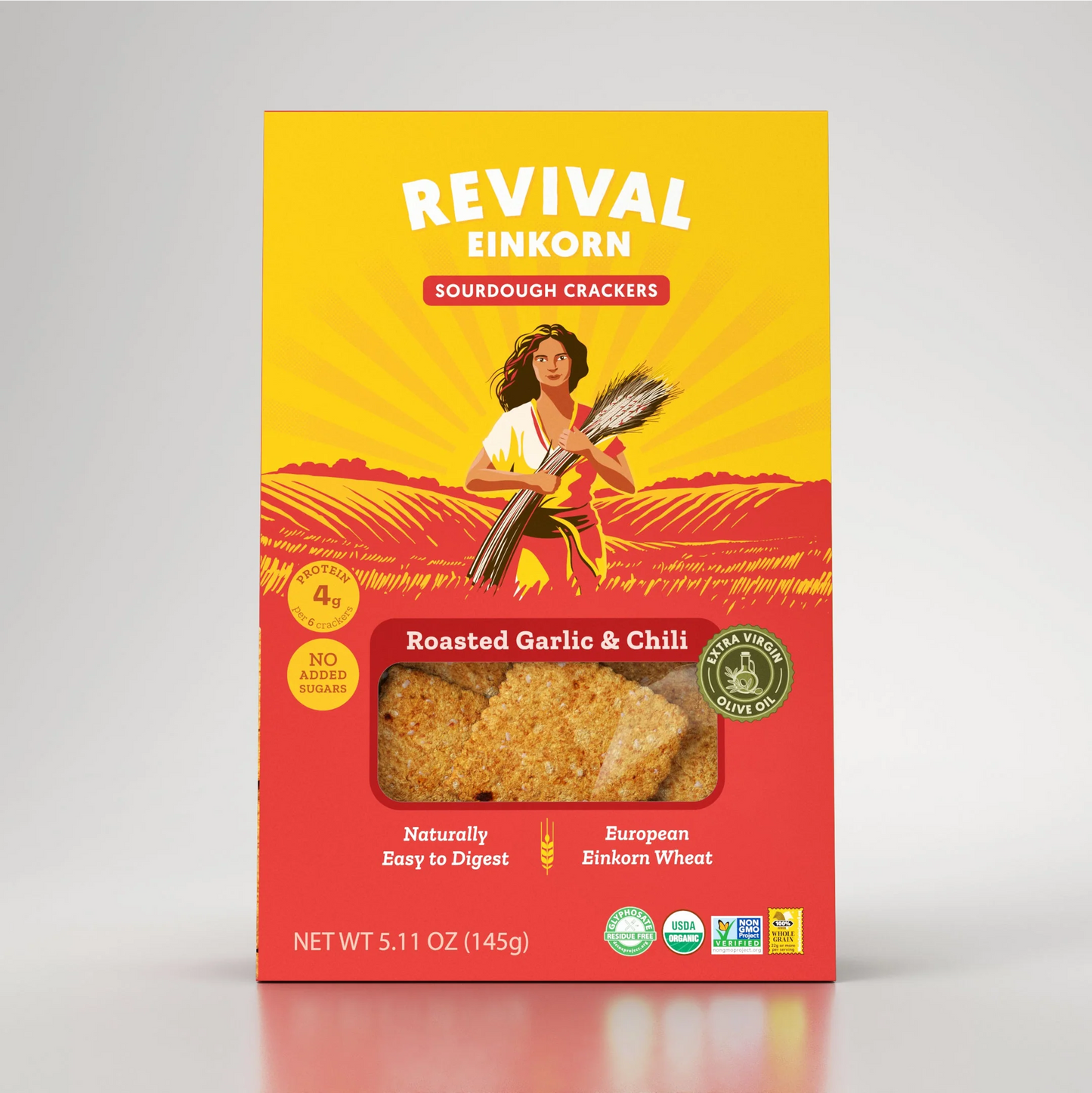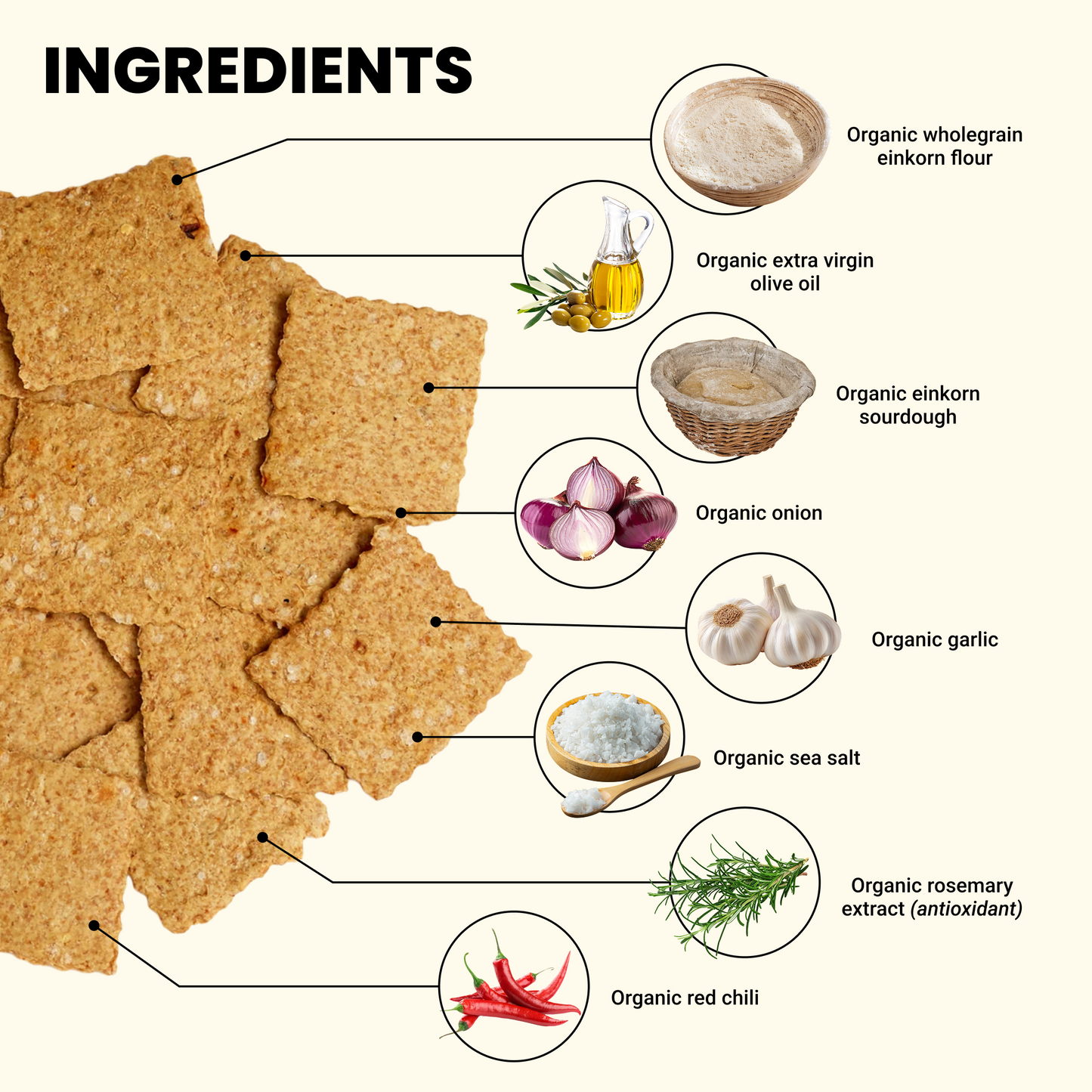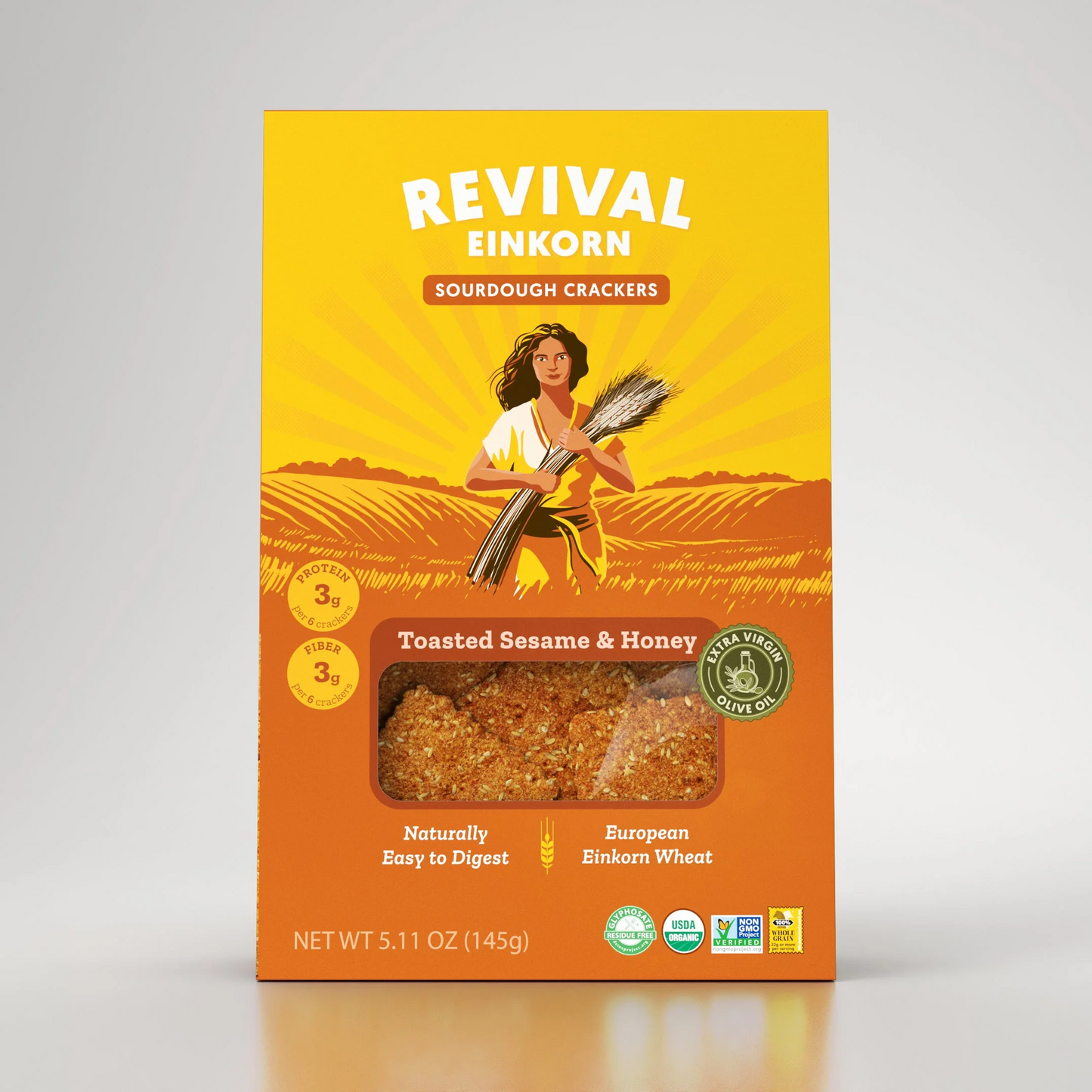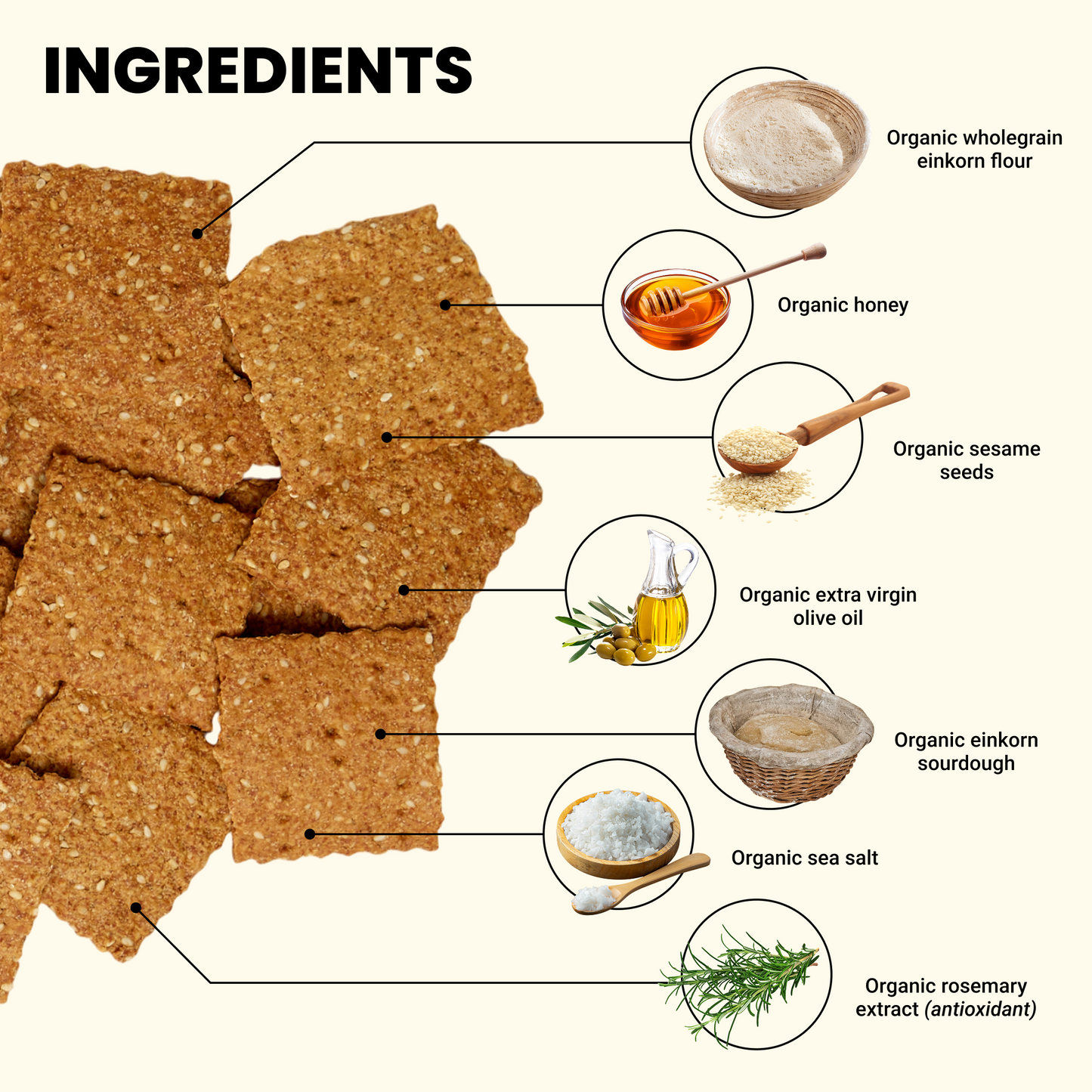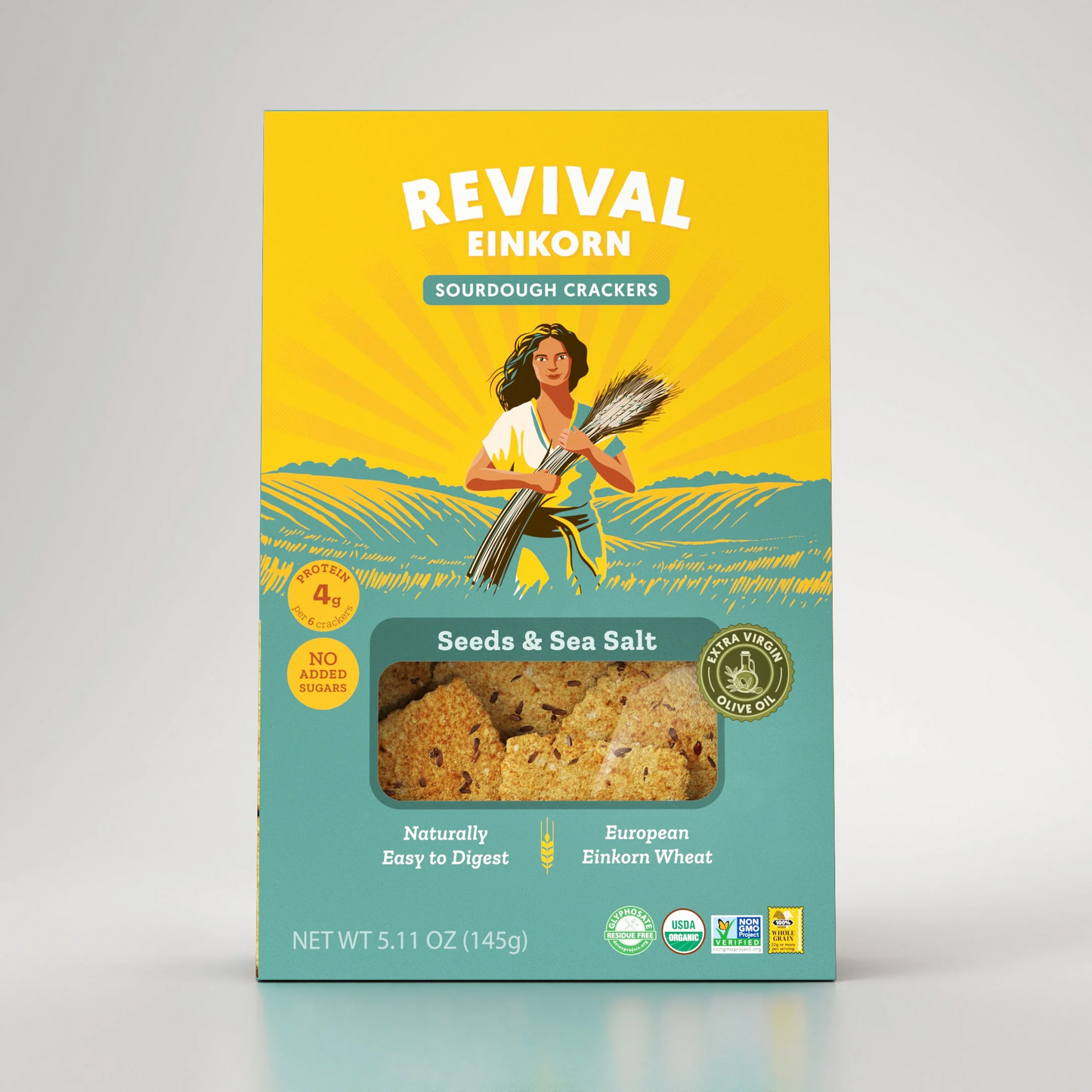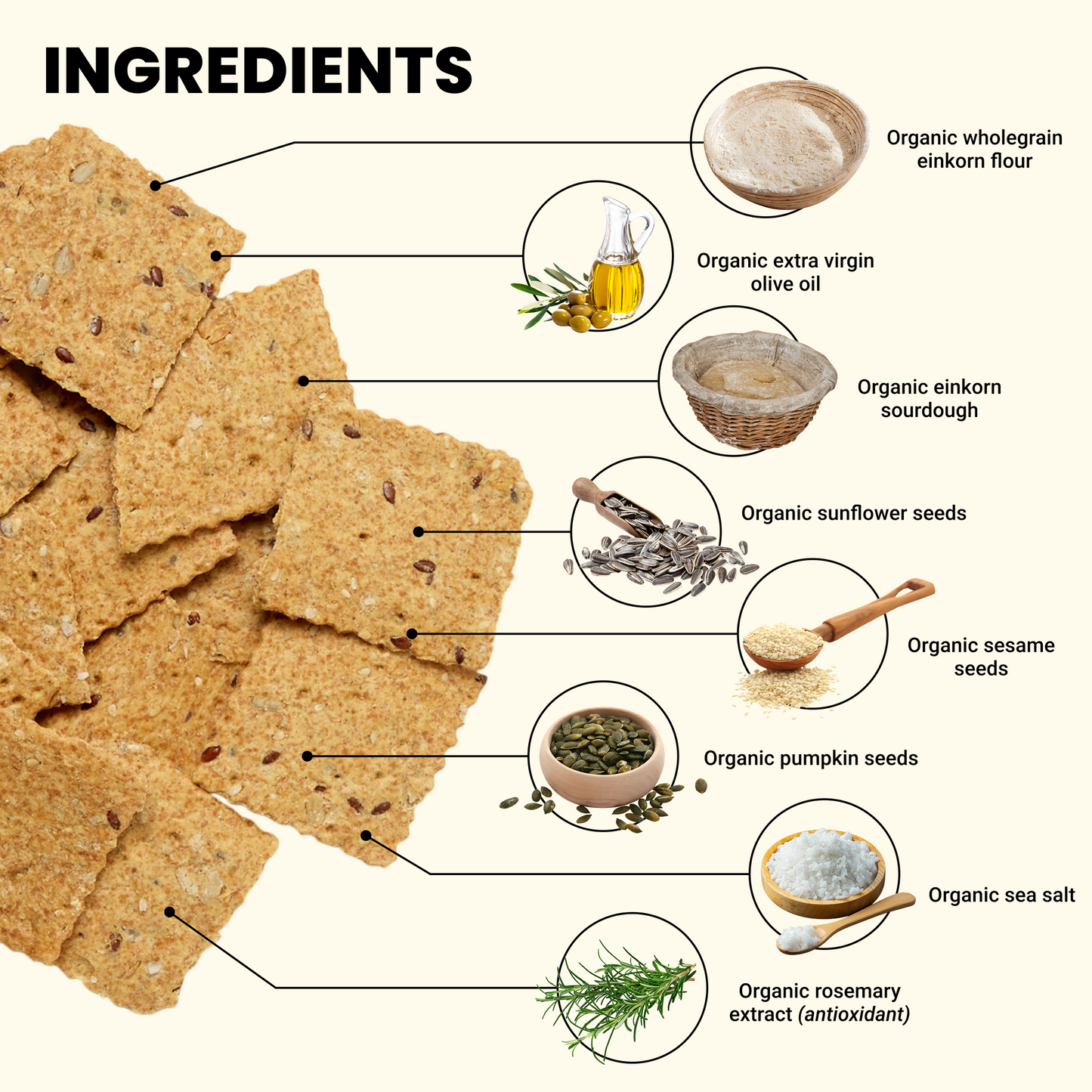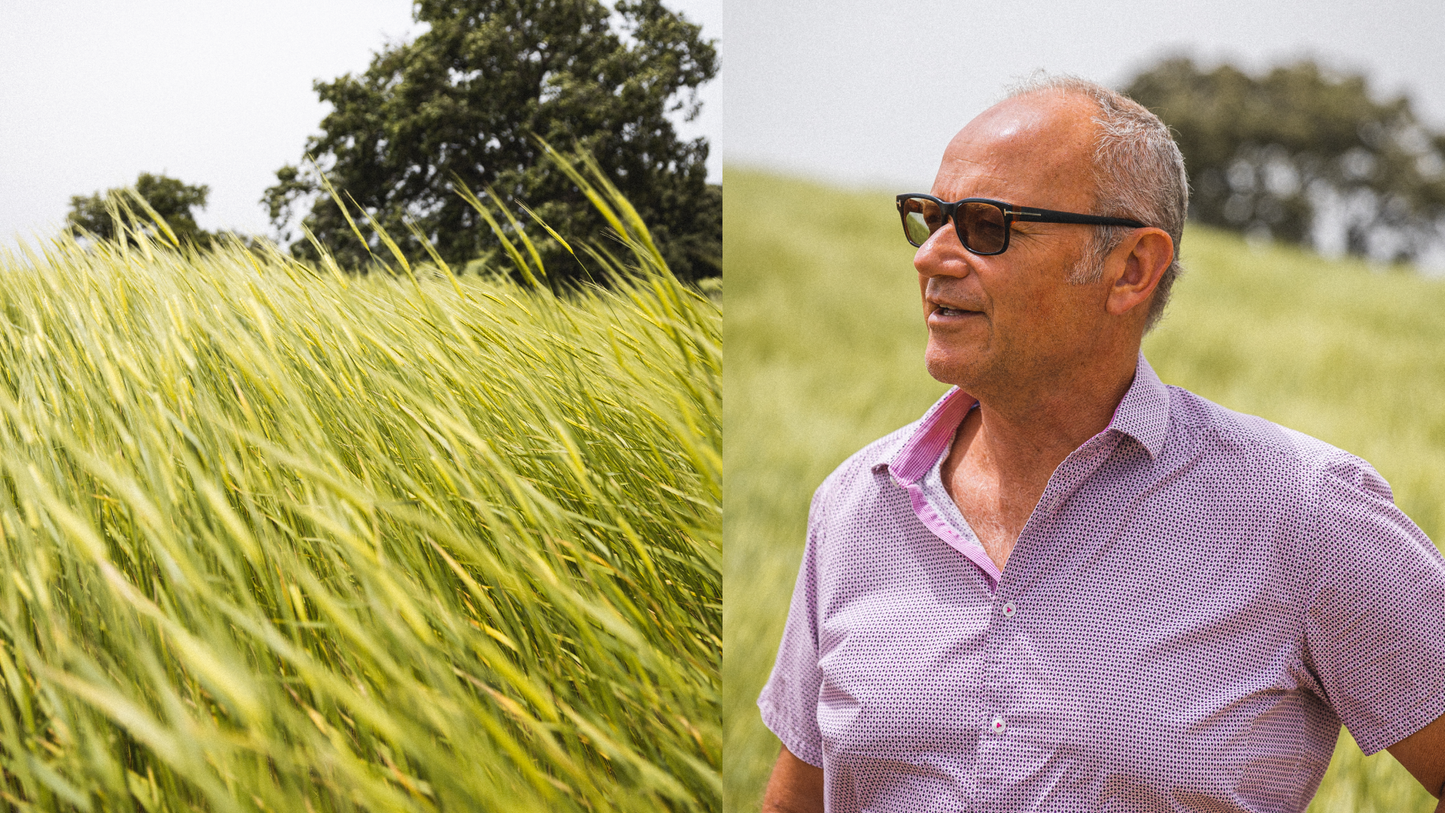
By Werner Forster, CEO of Revival Einkorn
For decades, wheat has been at the heart of human civilization, feeding populations across the globe. But today’s modern wheat is drastically different from what our ancestors ate thousands of years ago. Hybridization, industrialized farming, and modern processing methods have fundamentally altered this staple grain, leading to widespread digestive issues and the rise of gluten-free diets.
At Revival Einkorn, we believe there’s a better way. Einkorn wheat—the world’s oldest, genetically pure wheat—offers a return to what nature intended. In this post, I’ll share insights from my journey in the food industry and why einkorn stands apart from modern wheat.
Why Does Wheat in Europe Feel Different?
Many people who struggle with wheat products in the U.S. are surprised to find that they can eat bread, pasta, and pastries in Europe without the same digestive discomfort. Why? Several key factors contribute to this difference:
- Different Wheat Varieties – In the U.S., the dominant wheat is hard red wheat, which has higher gluten strength, making it ideal for industrial baking. In contrast, European countries grow more soft wheat varieties, which have a different gluten structure.
- Lower Glyphosate Use – While not all conventional wheat is treated with glyphosate, pre-harvest desiccation (using glyphosate to dry wheat before harvest) is more common in North America than in parts of Europe. This chemical residue may play a role in how people react to wheat.
- Traditional Fermentation Methods – Many European bakeries still use sourdough fermentation, which breaks down gluten and enhances digestibility. In contrast, much of the bread in the U.S. is made with fast-acting commercial yeast, which doesn’t allow for the same pre-digestion process.
These differences matter. But beyond regional practices, the real issue lies in what modern wheat has become—and what we’ve lost along the way.
The Impact of Hybridization on Wheat
Hybridization is different from genetic modification (GMOs). While GMOs involve inserting genes from one species into another, hybridization occurs when different varieties of wheat are crossbred to create new strains. This has been done for centuries to improve yield, disease resistance, and gluten strength.
However, wheat hybridization has also dramatically changed the structure of the grain:
- Increased Gluten Strength – Modern wheat contains higher levels of D-genome gluten proteins, which are linked to increased immune reactivity in some individuals. Einkorn, in contrast, lacks these problematic gluten proteins.
- Altered Starches – The starch composition of hybridized wheat can contribute to blood sugar spikes. Einkorn has a simpler starch structure, which may be gentler on blood sugar levels.
- Reduced Nutrient Density – As wheat was bred for yield rather than nutrition, key minerals like zinc, magnesium, and iron have decreased in modern wheat varieties. Einkorn, however, is naturally rich in these essential nutrients.
Einkorn is the only wheat that has never been hybridized, meaning it remains as nature intended—nutrient-dense, easy to digest, and free from industrial manipulation.
How Einkorn Wheat Supports Better Digestion
Many people assume gluten is the problem, but emerging research suggests that the way wheat has been altered, combined with modern processing methods, may be a bigger issue. Einkorn naturally supports digestion for several reasons:
- Simpler Gluten Structure – Einkorn’s gluten is weaker and more water-soluble, making it easier to break down. Many people with gluten sensitivity (though not celiac disease) tolerate einkorn well.
- Higher Antioxidant Content – Einkorn contains up to 300% more antioxidants than modern wheat, which may help combat inflammation.
- More Prebiotic Fiber – Einkorn’s natural fiber content supports gut health by feeding beneficial bacteria in the microbiome.
For those who struggle with modern wheat, switching to einkorn may reveal that the issue isn’t wheat itself—but what’s been done to it.
Einkorn and Celiac Disease: What You Need to Know
One of the most common questions we receive is: Can people with celiac disease eat einkorn?
The short answer is no—at least from a legal and medical standpoint. While some studies suggest einkorn causes delayed or reduced immune responses in celiac patients, it still contains gluten and should not be consumed by those with diagnosed celiac disease.
However, for individuals with non-celiac gluten sensitivity (NCGS), einkorn may be a viable option. Thousands of our customers report eating einkorn without digestive distress, though we always encourage people to consult their healthcare provider before making dietary changes.
How Einkorn Is Grown and Why It Thrives in Regenerative Agriculture
Einkorn’s natural resilience makes it an ideal crop for regenerative and organic farming. Unlike modern wheat, einkorn:
- Requires No Synthetic Fertilizers – Its deep root system naturally extracts nutrients from the soil.
- Resists Pests and Weeds – Einkorn is a strong competitor against invasive plants, reducing the need for herbicides.
- Thrives in Low-Water Conditions – It grows well in dry, arid regions, making it a sustainable grain choice.
Many of the farmers we work with have transitioned from conventional wheat farming to einkorn because it allows them to work with nature, rather than against it.
Bringing Einkorn Back to Your Table
At Revival Einkorn, our mission is simple: to bring back the wheat that nature designed. That’s why we offer a range of products made with 100% whole einkorn, including:
- Einkorn Pasta – A nutritious alternative to conventional pasta, rich in protein and fiber.
- Sourdough Einkorn Crackers – Handmade, fermented for better digestion, and packed with flavor.
- Coming Soon: Einkorn Flour, Bread, Breakfast Cereals, and More
We’re not just selling wheat—we’re reviving a lost food tradition.
The Takeaway: Rethinking Wheat for Better Health
If you’ve struggled with modern wheat, it’s worth exploring alternatives like einkorn. Try replacing your usual bread or pasta with einkorn for a few weeks and see how you feel. Many people find that wheat itself isn’t the problem—it’s what’s been done to it.
👉 Learn more and shop our einkorn products at RevivalEinkorn.com

